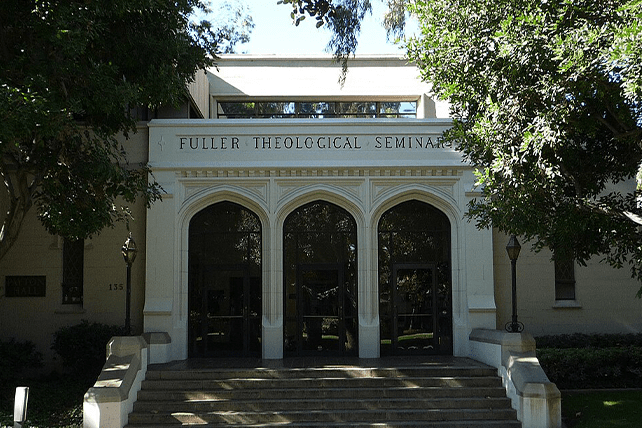Editor’s note from Dr. Ed Stetzer: Dr. David Goatley, president of Fuller Seminary, asked to respond to my article mentioning Fuller. I’m glad to share his response here. I am praying for David and for Fuller Seminary.
In a 1976 chapel address, President David Allan Hubbard reflected on Fuller Theological Seminary’s founding vision. At a time when many evangelicals favored Bible institutes, Fuller chose instead to become a seminary—committed to rigorous scholarship, service to the whole church, and Christian engagement in social issues. These choices, Hubbard noted, were not without controversy: “Every item in Fuller’s original profile was controversial.” But they reflected who we believed God had called us to be.
Throughout our history, Fuller has sometimes aligned closely with the broader evangelical community. At other times, we’ve offered distinct theological contributions and necessary nuance. We continue to pursue this calling as “an evangelical, multidenominational, international, and multiethnic community dedicated to equipping men and women for the manifold ministries of Christ and his church.” We aim to form global Christian leaders for the wide range of contexts that matter to God.
Two examples of Fuller’s distinctive voice within evangelicalism are worth highlighting. First, we are one of the few evangelical seminaries with a School of Psychology and Marriage and Family Therapy. This reflects our conviction that both theology and psychology are vital to human flourishing. We recognize that mental health care and spiritual care are not in conflict but can be deeply complementary—an understanding not yet fully embraced by all our peers.
Second, we are unapologetically egalitarian. We affirm that both women and men are created in God’s image and that the Holy Spirit gifts and calls them equally to lead and serve. This conviction shapes our teaching, leadership, and community life, even when it places us at odds with other parts of the evangelical world.
In recent days, there has been public conversation about Fuller’s position on marriage, following a meeting of our Board of Trustees. As is often the case, some reports have been incomplete or misleading. In response, I shared a message with our community to offer clarity.
After several years of consultation, dialogue, and prayerful reflection, the Board reaffirmed Fuller’s historic theological understanding of marriage and human sexuality as a covenantal union between one man and one woman, with sexual intimacy reserved for that union. This position aligns with the majority of evangelical perspectives worldwide.
At the same time, we acknowledge that faithful Christians—through study, discernment, and lived experience—have come to different conclusions about covenantal relationships. Some evangelicals will disagree with this acknowledgment; others will resonate deeply. Recognizing such differences does not weaken our commitment to historic Christian teaching. Instead, it reflects our effort to engage complex realities with theological integrity and pastoral sensitivity.
Some see a contradiction in holding both positions. Perhaps there is a logical tension. But theologically, this reflects the incarnation—God entering human reality not in abstract concepts, but in flesh and blood. As John 1 declares, “The Word became flesh.” The incarnation is not logically neat, yet it lies at the heart of our faith.
A friend recently shared a photo of a newborn grandchild wrapped in a blanket, held by his grandmother in a sterile hospital room. But we all know birth is anything but clean. It is messy—and beautiful. So too is life and ministry.
Engaging today’s complex issues requires a faithful, sometimes messy, commitment to Scripture, the cross, conversion, and public witness. Many believers hold to the traditional Christian view of marriage while also loving and listening to friends, family members, and neighbors who see things differently. Being close enough to understand and to share Christ’s love in word and deed is part of our calling.
At Fuller, we remain committed to equipping Christian leaders to serve faithfully and wisely in all the places where God sends them. Some will affirm our approach. Others may differ. We welcome respectful dialogue, guided by charity and civility. The world needs this kind of witness now more than ever.

